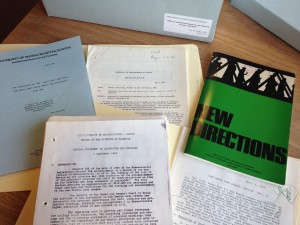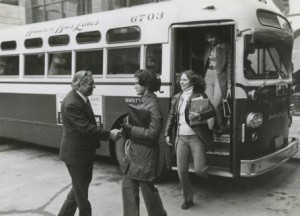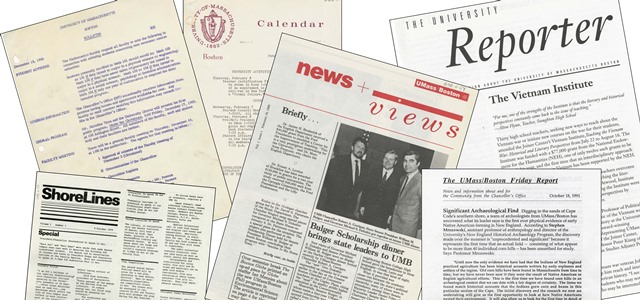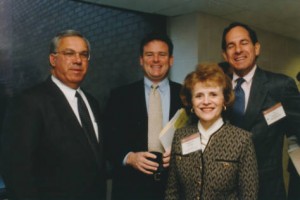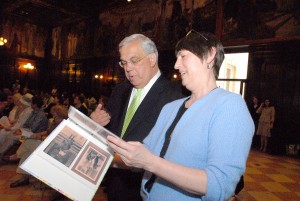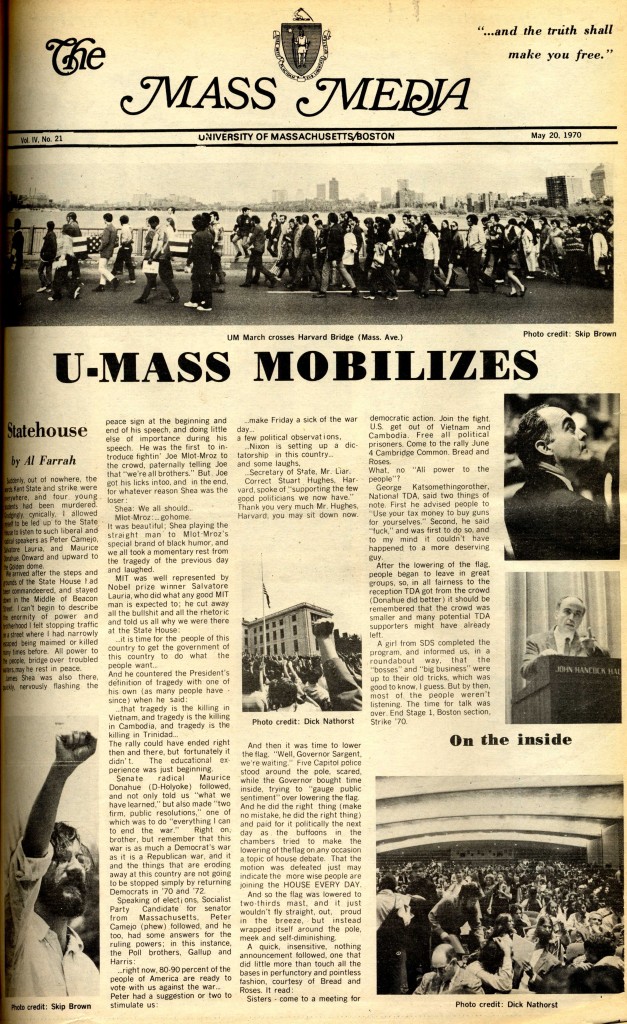
Second page of the Mass Media, May 20, 1970. University Archives and Special Collections, Joseph P. Healey Library, UMass Boston.
In May 1970, students, faculty, and staff at the University of Massachusetts Boston joined more than 1,250 colleges in protesting the shootings at Kent State on May 4 and, later, at Jackson State on May 15.
On May 5, UMass Boston’s student Senate, according to the Boston Globe, “voted to strike in memory of the four killed at Kent, pending a referendum [on May 6] by the 3600 students …” This resolution was passed amid nationwide demonstrations against the war in Vietnam and, in particular, the U.S. invasion of Cambodia, which President Richard Nixon announced in a national address on April 30.
With the events at Kent State the previous day, the protests took on a new, expanded meaning and May 5 became the first day of a student strike that shut down (either partially or completely) more than 450 high school, college, and university campuses across the country.
According to UMass Boston’s student-run newspaper Mass Media – reporting in a “Special Strike Issue” of the publication on May 7, 1970 – students, faculty, and staff at the university passed a resolution earlier that week stating, in part:
We, the faculty, students, and staff of the University of Massachusetts-Boston, hereby call a limited strike, to continue through the final examination period, with the objective of educating ourselves and the urban community about the issues raised by the faculty motion adopted on May 7 1970: American presence in Southeast Asia; political imprisonment of blacks and others; and repression of political dissidents, epitomized by the murder of students at Kent State University…
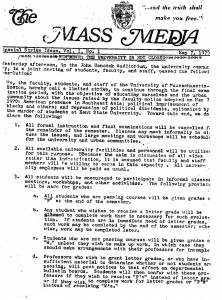
Vol. 1, Iss. 1 of the Mass Media’s Special Strike Issue. University Archives and Special Collections, Joseph P. Healey Library, UMass Boston.
Weeks of building frustrations – on the UMass Boston campus, around the city, and across the country – preceded this limited strike. In March, plans for the new campus of the university – to be located on Columbia Point, in the city’s Dorchester neighborhood – were unveiled, to considerable community and student resistance. There were efforts in the legislature (ultimately unsuccessful at the time) to dramatically increase tuition at the university. Many faculty members and students expressed concerns that a UMass Boston faculty member had been fired, allegedly because of her involvement in political actions.
And then, on April 30, the U.S. announced that it would invade Cambodia, and just 5 days later at Kent State University, forty-five years ago today and after days of protest and demonstrations against the invasion of Cambodia, members of the National Guard opened fire on a crowd of demonstrators, wounding 9 and killing 4 Kent State students, including bystanders not involved in the demonstrations. In an eerily similar incident 11 days later at Jackson State College in Jackson, Mississippi (now Jackson State University), in the early hours of the morning, police shot and killed 2 students and injured 12 during an anti-war demonstration.
Click here to see how other colleges and universities across the country are showing that #May4Matters.
Learn more about the Kent State shootings here.
University Archives & Special Collections in the Joseph P. Healey Library at UMass Boston collects materials related to the university’s history, as well as materials that reflect the institution’s urban mission and strong support of community service, notably in collections of records of urban planning, social welfare, social action, alternative movements, community organizations, and local history related to neighboring communities.
University Archives & Special Collections welcomes inquiries from individuals, organizations, and businesses interested in donating materials of an archival nature that that fit within our collecting policy. These include manuscripts, documents, organizational archives, collections of photographs, unique publications, and audio and video media. For more information about donating to University Archives & Special Collections, click here or email library.archives@umb.edu.
